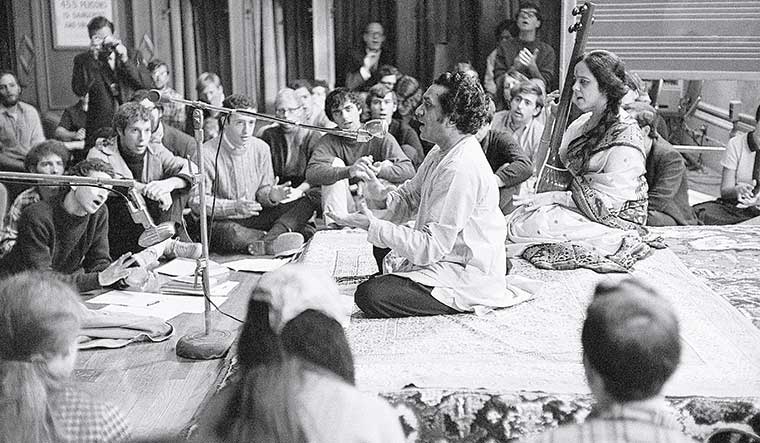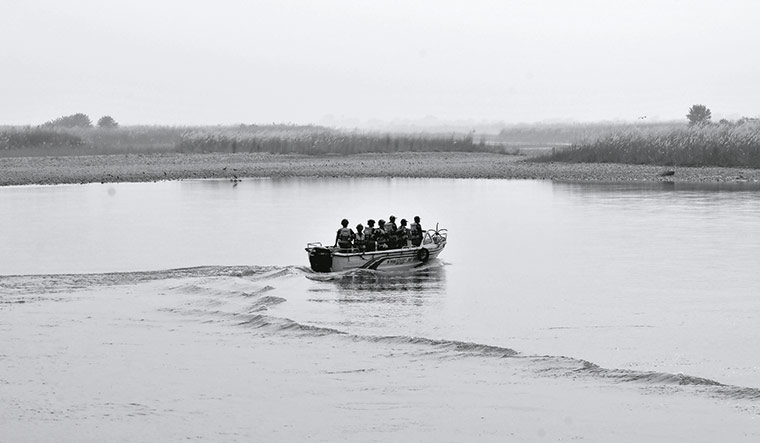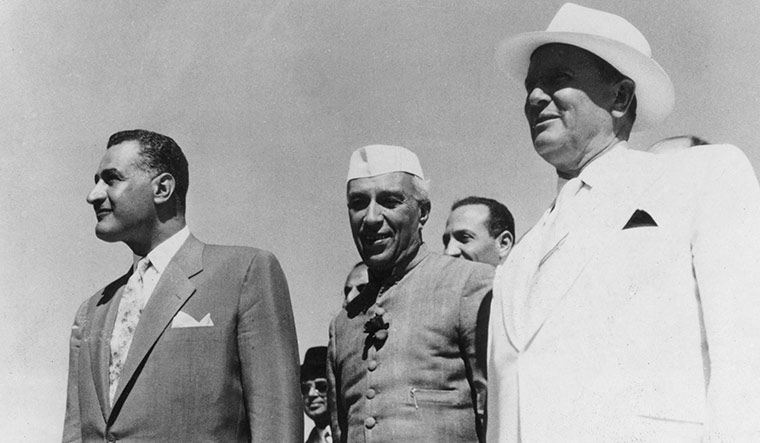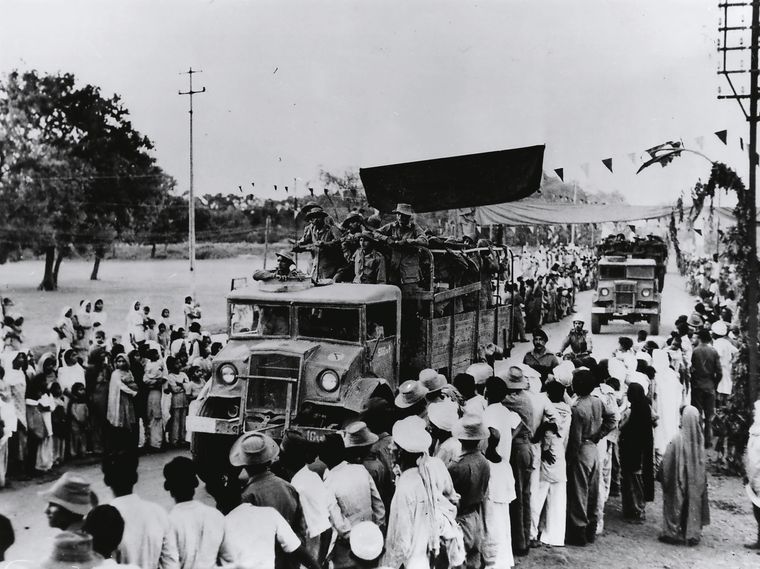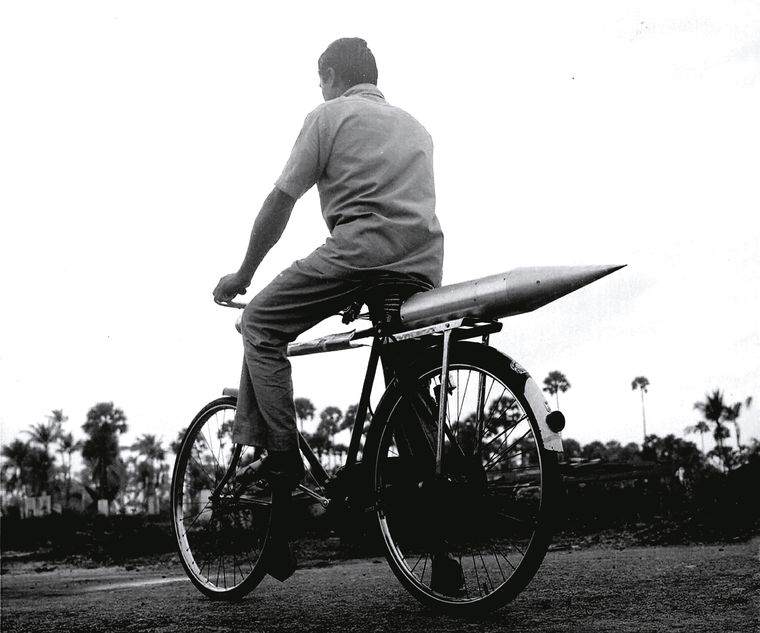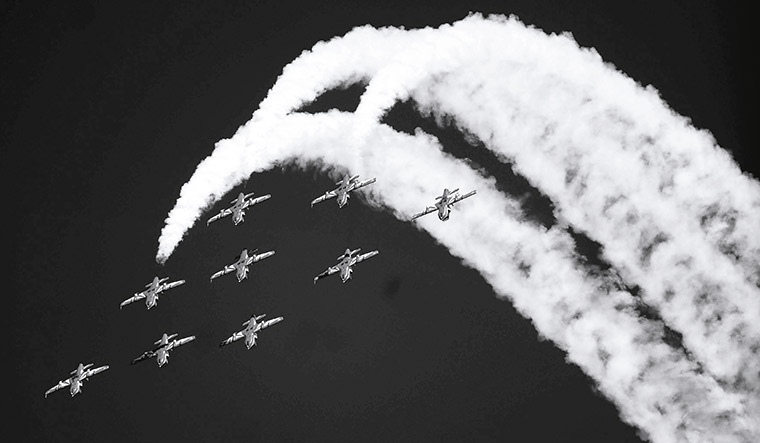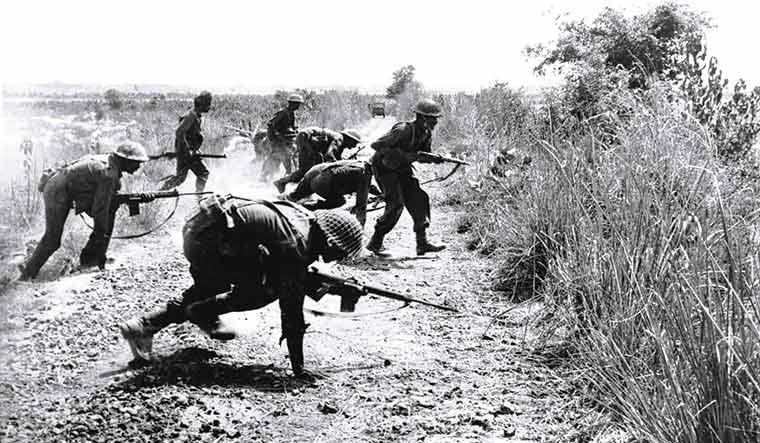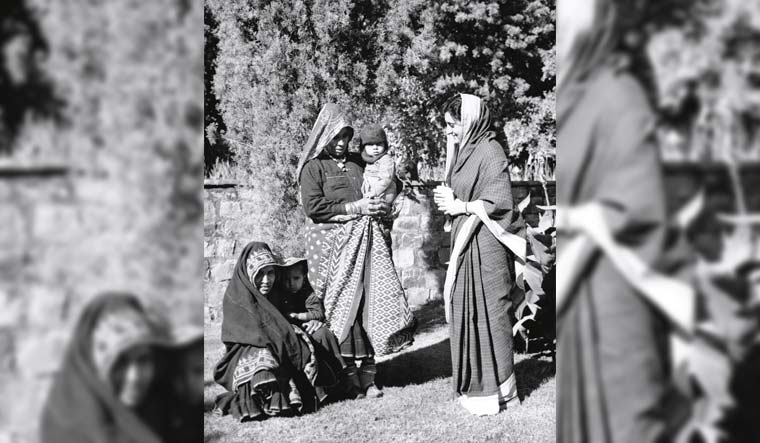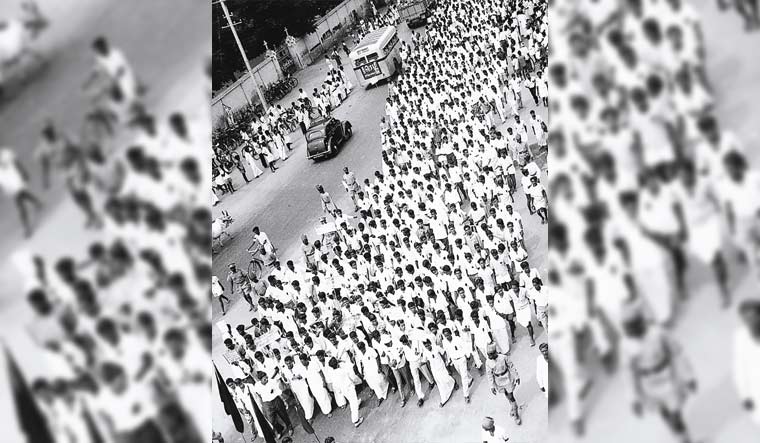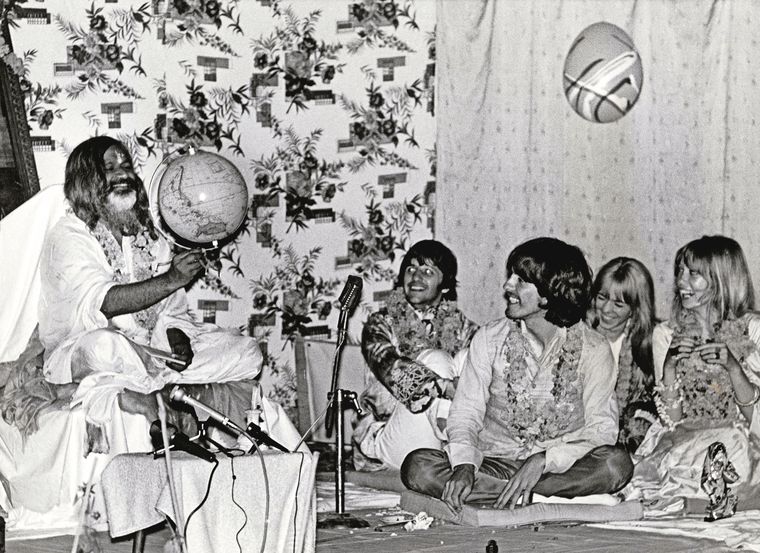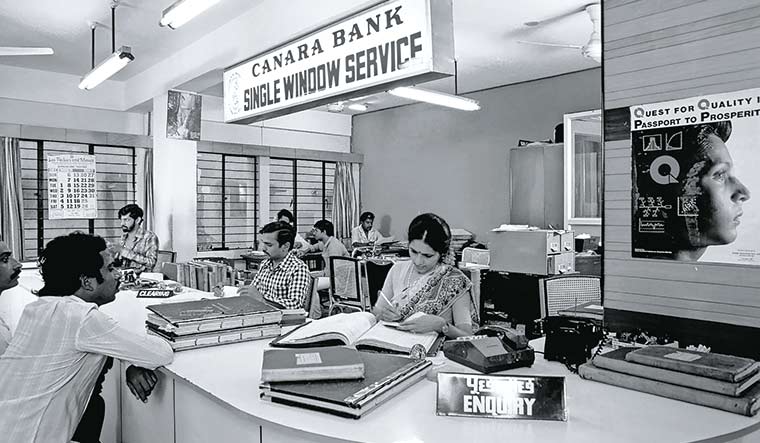These are the Swinging Sixties. The music is jazz, the skirt a mini and the hairdo, an elaborate bouffant. James Bond enters the silver screen, giving viewers a glimpse of the high life. Raj Kapoor’s Sangam sets a similar trend in India, presenting Switzerland through the Bollywood lens. Vividh Bharati edges out Radio Ceylon to rule the air waves. Lata Mangeshkar is already the voice of India.
In her teens now, India dashes headlong through the big bad world. She takes some knocks, but the young are never down too long. So when the US withholds wheat aid over India’s criticism of the Vietnam war, India knows it is time for a green revolution. These are her growing years—hunger cannot be a virtue.
One war can batter a nation. India tackles two of them, and also liberates Goa with military might. The Chinese aggression leaves India down, but not out. College students learn to administer first aid, wives donate their gold, and the country rallies as one, counting every soldier who died as an Indian first, a Sikh or Madrasi later. Lofty sentiments notwithstanding, the south protests against the dominance of the north, in the form of anti-Hindi protests. The military lessons from the China blunder help India clinch several victories in the war against Pakistan.
India finds its place not just in the world, but beyond it as well. It leads the Non-Aligned Movement and, as the US and the USSR engage in the space race, makes an assured debut in outer space by launching its first rocket from Thumba, Kerala.
The country’s culture of paradoxes begins to crystallise. Rockets ride atop bullock carts. IITs and Transcendental Meditation coexist. The new-age guru Rajneesh preaches free sex and birth control. Bombay’s dark underbelly spawns three dons even as its skyline grows.
India loses two prime ministers, and a new guard takes over governance.
1960
The World Bank brokers the Indus Waters Treaty between India and Pakistan for sharing and distributing water in the Indus river and its tributaries. The IWT gives control of the headwaters to India, and the downstream regions to Pakistan. The deal will survive three wars and intermittent clashes on the border. (Above) Border Security Force personnel at the Chenab outpost patrols the Pargwal area of the international border | Getty Images
1961
Nehru is flanked by fellow founders of the Non-Aligned Movement—Gamal Abdel Nasser of Egypt (to his right) and Josip Broz Tito of Yugoslavia—at the movement’s first meeting in Belgrade in August 1961.
NAM loses steam over the decades, but leaves a lasting template in diplomacy.
India also flexes its military muscles, as it annexes the Portuguese territories of Goa, Daman and Diu.
1962
China violates the McMahon Line and attacks Indian territory. The ensuing war finds India ill-prepared and rather friendless. The defeat becomes a turning point for India. Every strategic move will now be calibrated against China. (Above) People in Ladakh line the streets as Indian troops travel to the border | Getty Images
1963
A bicycle carries components of India’s first rocket to the launchpad in Thumba, Kerala, on November 21. India will go on to carve a name in space-faring, specialising in low-cost launches.
1964
Hindustan Aeronautics Ltd’s HJT-16, better known as Kiran, makes its inaugural flight. It will soon be inducted into the armed forces. The Navy commissions its first base in Andaman and Nicobar.
Prime minister Nehru dies of heart attack in May.
1965
Another war, on the western front, as Pakistan troops attack—first at Kutch border, and then Kashmir. Indian forces redeem themselves on air and land, and reach right up to Lahore. The United Nations brokers a ceasefire in September | Getty Images
1966
Lal Bahadur Shastri, who took over as prime minister after Nehru’s death in May 1964, dies a day after signing the Tashkent Agreement with Pakistan. Indira Gandhi becomes prime minister.
1967
Dissent over Hindi becoming the official language in 1965 boils over in the south, gaining political heft and leading to the rise of Dravidian politics in Madras state. C.N. Annadurai of the DMK becomes chief minister of Madras.
In West Bengal, the Naxalbari movement gains momentum after the police shoot 11 persons at a peasants’ rally.
1968
The Beatles visit Rishikesh to attend Maharishi Mahesh Yogi’s Transcendental Meditation centre. (From left) Yogi, Ringo Starr and George Harrison at a party in Rishikesh on February 25 to celebrate Harrison’s 25th birthday. For most band members the flirtation with Indian spirituality is brief; but Harrison is hooked for life. Spirituality finds a place in India’s soft power arsenal | Getty Images
1969
Indira Gandhi takes the ordinance route in July to nationalise 14 banks—a left-leaning move to counter rivals in the Congress. The Supreme Court rules against the subsequent legislation, but Indira sidesteps it by again issuing an ordinance.
Later in the year, she is expelled from the Congress. The party splits, and she trumps the old guard to emerge as the Congress’s undisputed new leader.


